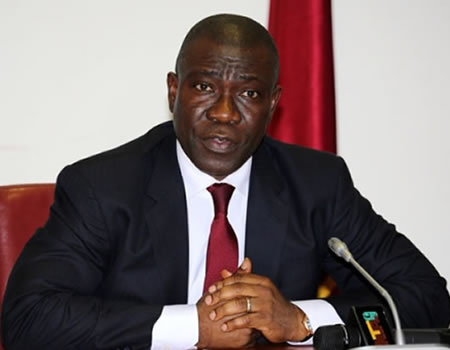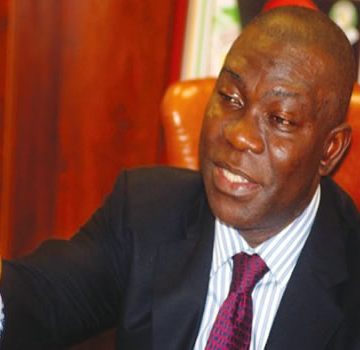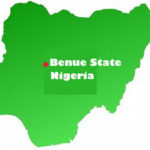He said the challenge was therefore how to check the excesses of many civilian leaders who are just as tyrannical and abusive as the military and civilian despots they criticized and replaced.
Ekweremadu made the assertion while delivering a lecture titled: “Constitutionalism and the Challenges of Leadership in Africa: An Evaluation I’d Tested Models,” organized by the Centre for Media and Peace Initiatives (CMPI) in New York.
He said unless such tendencies were checked, African countries cannot make progress.
According to him, “Imperialist tendencies of many African leaders must be checked and disciplined if Africa is to make progress.
“Improvement depends on insisting that African leaders govern like democrats and imposing consequences on those unable or unwilling to do so.
“That is what a country’s constitution and the democratic process are designed to accomplish.”
Ekweremadu said even though the presidential system of government was ideal for welding the pluralism inherent in African nations together, there was the need to modify it “to curtail presidential excesses, and importantly, create greater overlap and affinity between the executive and the legislative arms of government.”
He therefore suggested a hybrid model of presidential and parliamentary system and inclusion of “vote of no confidence” as a way to check the president’s excesses.
The Deputy Senate President said: “To this end, a hybrid of both the presidential and parliamentary systems will go a long way in keeping the presidency in check, while also reaping the benefits inherent in presidential system.
“For instance, presidential excesses thrive because there are no consequences for bad behaviours. Although the United States-styled constitutions in Africa provide for impeachment, it is usually exceedingly difficult, if not impossible to carry out.
“The impeachment process should be replaced with a Vote of No Confidence, which should pass by simple majority of both Houses in cases of bicameral legislatures.
“That way, it will be easier to remove non-performing and autocratic presidents and call for early elections.
“The president should also appoint all or a predetermined number of his/her ministers from the parliament and partly from outside the parliament, especially technocrats. Ghana and Kenya are good examples.
“In Kenya, the President is bound by the constitution to appoint Ministers of the Government of Kenya from among Members of the National Assembly.
“Similarly, in Ghana the President appoints the Ministers from among the national parliament, although he is also constitutionally empowered to appoint a fewer number of Ministers from outside the parliament, but who must also be qualified to contest as national parliamentarians
“This, in addition to providing for Question Time, will drastically reduce the cost of governance and help create greater overlap and affinity between the executive and legislative arms of government.
“With both provisions, legislative-executive gridlock that has become a notorious feature of the presidential system has been largely eliminated.
“Also the ugly instances where members of the executive refuse to honour parliamentary invitations or brazenly flout legislative resolutions and directives would also be curtailed.”
Stressing the need for confidence vote as is done in South Africa, which he observed, limits the exercise of discretional power, Ekweremadu further noted: “The very cumbersome, windy nature of the impeachment process as a way of kicking out a chief executive is another reason leaders disregard the constitution and even shun clear orders of the court, among other excesses.
“This process should be replaced with or backed up with a vote of No Confidence.
“That way, early elections could be called to test the popularity of the government, as is the case in France and South Africa.
“Although section 87 of the Constitution of South Africa makes provisions for the impeachment of the President on ground of serious violation of the constitution or laws of the land or a serious misconduct or inability to perform the functions of the office, Section 93 also provides for the compulsory resignation of the President at any time the parliament feels that it no longer has confidence in him.
“It also allows the parliament to sack the President’s cabinet.”







